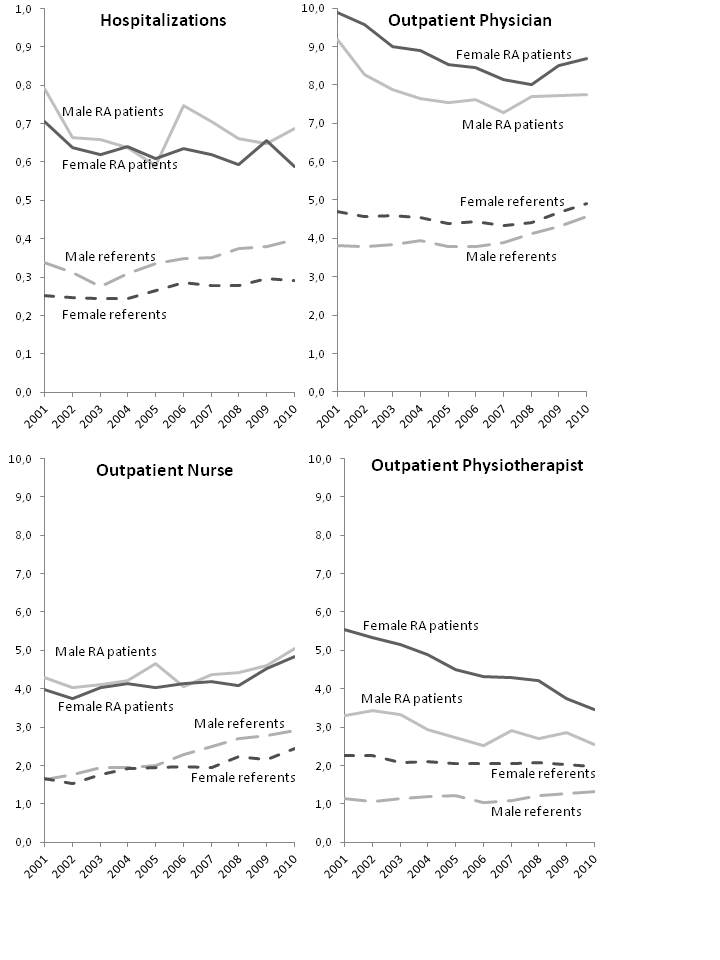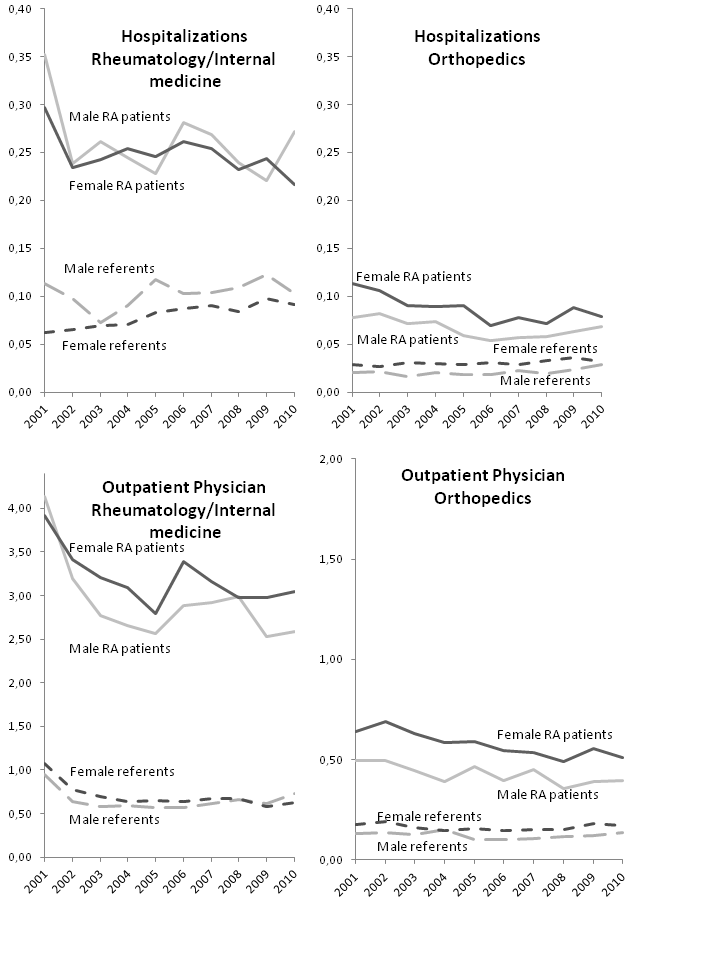Session Information
Session Type: Abstract Submissions (ACR)
Background/Purpose: To study twenty-first century trends in health care utilization by rheumatoid arthritis (RA) patients compared to the general population.
Methods: Observational cohort study; using Swedish health care register data, we identified 3977 Region Skåne residents (mean age year 2001, 62.7 years and 73% women) consulting for RA (ICD-10 codes M05 or M06) in 1998-2001.We randomly sampled two referents from the general population per RA patient matched for age, sex, and area of residence. We calculated the year 2001-2010 trends for the annual ratio (RA cohort/referents) of the mean number of hospitalizations and outpatient clinic visits.
Results: By the end of the 10-year period 62% of RA patients and 74% of referents were still alive and resident in the region. From 2001 to 2010 the ratio (RA cohort/referents) of the mean number of hospitalizations for men and women decreased by 27% (p=0.01) and 28% (p=0.004), respectively. The corresponding decrease was 29% (p=0.005), and 16% (p=0.004) for outpatient physician care, 34% (p=0.009) and18% (p=0.01) for nurse visits, and 34% (p=0.01) and 28% (p=0.004) for physiotherapy (Figure 1 and 2).
Figure 1.Health care utilization during the first decade of the twenty-first century by patients in a closed rheumatoid arthritis cohort and their matched referents from the general population. The y-axes show the mean number of visits per subject per calendar year.
Figure 2.Health care utilization during the first decade of the twenty-first century by patients in a closed rheumatoid arthritis cohort and their matched referents from the general population. The y-axes show the mean number of visits per subject per calendar year.
Conclusion: During the twenty-first century, coinciding with increasing use of earlier and more active RA treatment including biological treatment, the overall inpatient and outpatient health care utilization by a cohort of RA patients decreased relative to the general population.
Disclosure:
S. Hagel,
None;
I. F. Petersson,
None;
A. B. I. Bremander,
None;
E. Lindqvist,
None;
C. Bergknut,
None;
M. Englund,
None.
« Back to 2012 ACR/ARHP Annual Meeting
ACR Meeting Abstracts - https://acrabstracts.org/abstract/trends-in-21st-century-health-care-utilization-in-a-rheumatoid-arthritis-cohort-compared-to-the-general-population/


